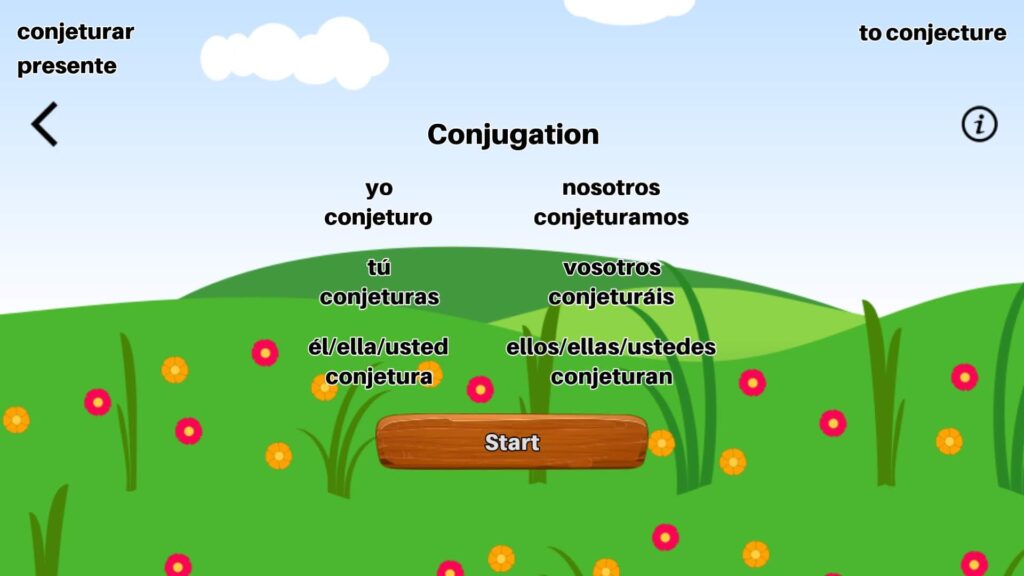Hola, Conjugation Champions!
Today’s verb might just make you hungry! Our featured word is ingerir, which means “to ingest.” Whether you’re talking about food, medicine, or even information, “ingerir” is your go-to verb. Let’s dive into its conjugation, uses, and some delicious examples.
Definition and Meaning
Ingerir: To ingest, to take into the body by swallowing or absorbing.
Example: Es importante ingerir alimentos saludables todos los días. (It’s important to ingest healthy foods every day.)
Present Tense Conjugation

Usage Tips
- Eating and Drinking: Use “ingerir” when talking about consuming food and beverages.
- Medication: Perfect for discussing how to take medicines or supplements.
- Pronunciation: Stress the second syllable: in-ge-RIR.
Sentence Practice
- Present Tense: Siempre ingiero una manzana por la mañana. (I always ingest an apple in the morning.)
- Preterite Tense: Ingerimos mucha agua durante la caminata. (We ingested a lot of water during the hike.)
- Imperfect Tense: Cuando era niño, no me gustaba ingerir verduras. (When I was a child, I didn’t like to ingest vegetables.)
Quiz of the Day
Translate the following sentences into Spanish using “ingerir”:
- You should ingest vitamins every day.
- She forgot to ingest her medicine this morning.
- They will ingest the information quickly.
(Answers at the bottom of this post!)
Keep learning, keep practicing, and keep ingesting those Spanish skills! Every verb you master brings you one step closer to fluency. ¡Hasta mañana!
Stay tuned for tomorrow’s verb and enjoy your day!
Saludos,
Daniela from the DOMA Games team
Answers to Quiz
- Debes ingerir vitaminas todos los días.
- Ella olvidó ingerir su medicina esta mañana.
- Ellos ingerirán la información rápidamente.





